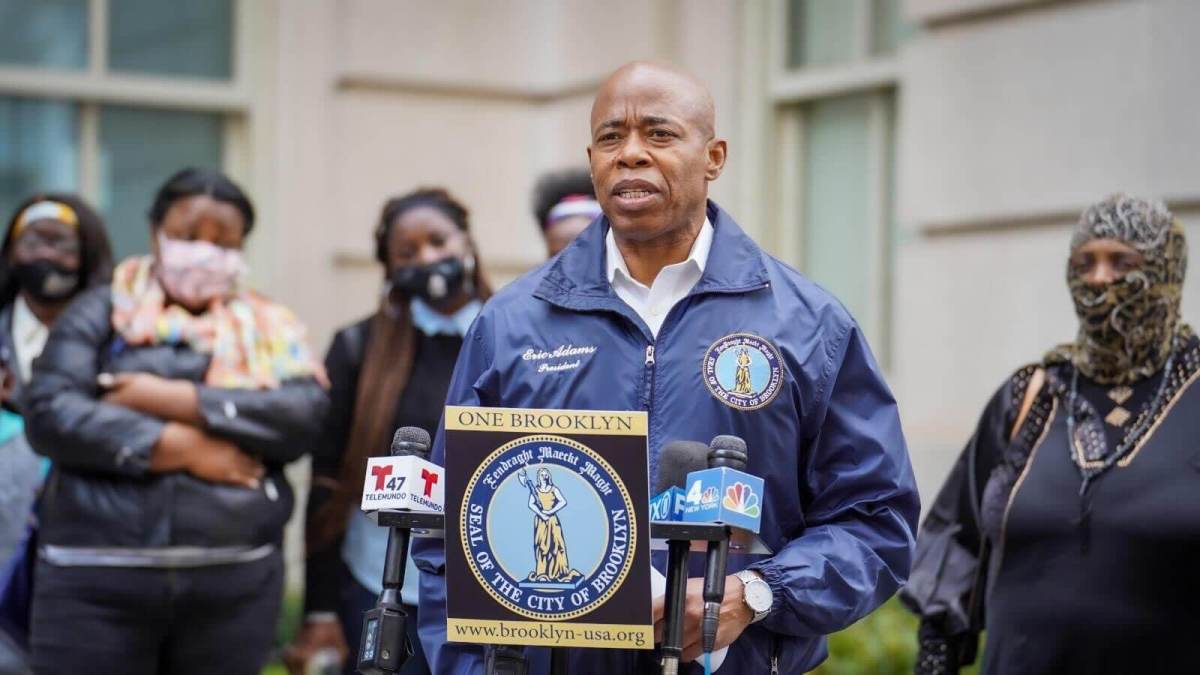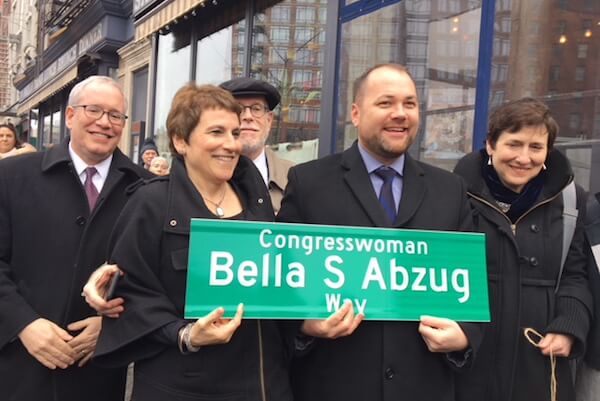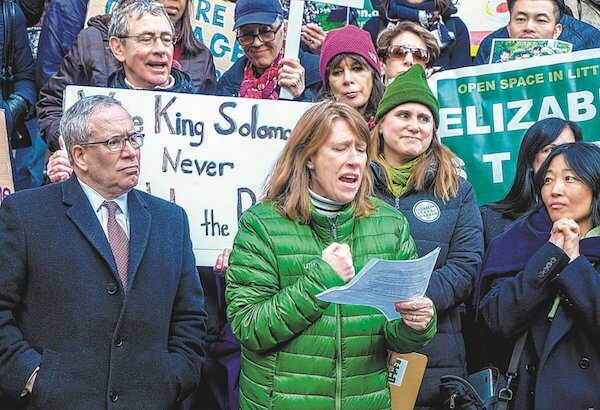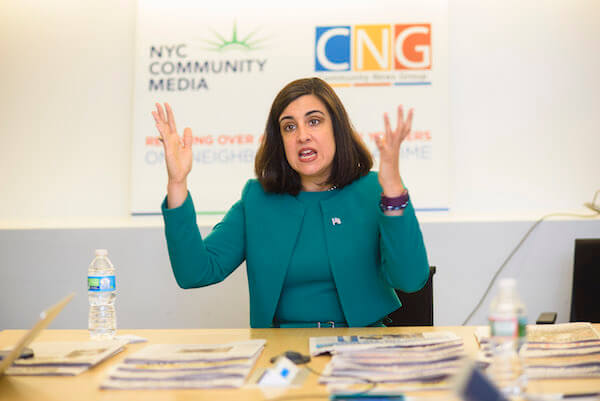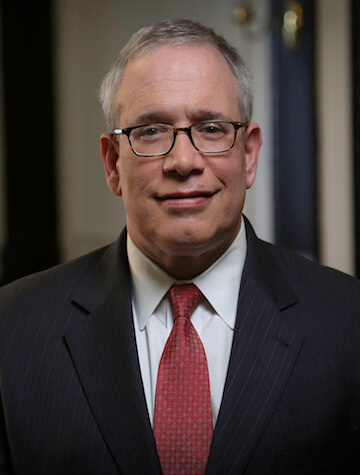Brooklyn Borough President Eric Adams believes New Yorkers need a general who “leads from the front,” especially with the trauma of COVID-19 and the ensuing fiscal crisis. He wants to be that leader, and is expected to announce his run for mayor on November 18.
Despite having built a campaign war chest and being rumored for months to be a mayoral candidate in 2021, Adams is set to make an announcement weeks after other rivals, including Maya Wiley and Scott Stringer, launched their bids. The delay, he says, was made due to his on-the-ground work during the COVID-19 crisis and out of respect to city dwellers who face hardships unseen in generations.
“I’ve witnessed trauma like I’ve never seen before, and you start your day looking to the leaders of the city and state and they were fighting… We saw fights over should schools open, should restaurants, should we shut down the city. That was just wrong and it traumatized New Yorkers,” Adams said in an interview with amNewYork Metro. “I’m going to show the city a unified relationship with the state. I’m a believer that generals lead from the front, that’s why I put that mattress on the floor in Borough Hall during COVID-19, so I could get up early in the morning every day and late at night.”
Among the first meetings on Adams’ agenda following his anticipated announcement was slated for November 19 with members of the New York Hispanic Clergy Organization, which was founded by anti-LGBTQ Bronx Councilmember Ruben Diaz, Sr. [Editor’s note: Diaz posted a tweet on the afternoon of November 18 announcing Adams withdrew from the meeting due to what Diaz described as “pressure from the left.”]
Adams was an strong supporter of marriage equality during his time in the State Legislature, but he drew attention last year when he delivered off-key remarks at an event that was meant to celebrate Stonewall House, SAGE’s new LGBTQ-friendly affordable senior housing development in Fort Greene. At the time the building opened, 77 percent of residents were people of color, all residents had incomes below 50 percent of the area’s median household income, and 54 units were reserved for residents of NYCHA or individuals on the waiting list for public housing.
But Adams said he was “concerned about the diversity” there and said residents of neighboring buildings complained that Stonewall House is a “pretty building on NYCHA property.”
“I don’t want to see beautiful floors like this and lead paint over there,” Adams said. “I don’t want to see rodents over there and comfort here.”
During the first mayoral forum of the campaign, hosted by the Jim Owles Liberal Democratic Club, Adams took the most conservative approach to sex work decriminalization — a major LGBTQ issue — when he said he is “not in favor of decriminalizing it.” He added, “I want to be clear. I don’t believe in the decriminalization of it.”
Among other issues, Adams is also evaluating the future of transportation in the city. Since the emergence of the coronavirus pandemic, New Yorkers have found themselves shunning subways and buses this year in favor of two wheels. The cycling and scooter surge, however, does not offer an entirely safe mode of transportation.
With the number of cyclist deaths exceeding those of 2019, year to date, the need for safe cycling infrastructure is never more apparent now than when 29 cyclists died last year.
Adams, who had no criticisms of the de Blasio administration’s Vision Zero program, said he would bring in allies in Transportation Alternatives and other advocates to build out safe corridors geared specifically for children to pedal to class.
CitiBike, under his administration, would continue on its current path to expansion outside of more affluent neighborhoods and into low income sections of the city.
“If our children feel safe enough to utilize the biking systems that we create, we will start raising young people who see biking as part of a normal day activity,” Adams said.
But with the Metropolitan Transportation Authority falling under hard times as a result of a mass exodus from the transit system after emergence of COVID-19, Adams says a priority for his administration would be to make sure there is no shortage of NYPD officers in subway stations and buses.
“We need to make sure, particularly in those times of the day when crime is a real problem, we need to put our police officers back riding the subways as well as at stations that sometimes I think we ignore,” Adams explained. “If we don’t make the subway system a safe place, we are going to have a hard time getting our economy up and running again.”
Adams, who started his NYPD career in the subways during the overnight hours, did not shy away from the topic of putting law enforcement officers in subways despite the unpopularity seen in early 2020 of the MTA’s decision to bring in 500 new cops to patrol for fare beaters and calm rising crime conditions. The MTA, however, went into a hiring freeze before the hiring of all these officers could be achieved.
“I’m a believer that the subways system should be free to encourage use, but if we can’t do that right away, let’s make it as inexpensive as possible for those everyday New Yorkers who are struggling. If you reduce that fare, you’re putting money right back in their pockets and we will encourage more people to use the system instead of driving vehicles,” Adams continued.
According to the borough president, a department under his watch would start with a female NYPD commissioner who will be tasked with diversifying the force and promoting officers based on merit after time spent in school safety and traffic enforcement.
With over 30 percent of NYPD officers living outside city limits, Adams wants that to change — and not only for the sake of having a force that has more in common with the populace. It also would mean taxpayer dollars that go into their paychecks are recycled back into the local economy.
Every agency can afford to have a five to 10 percent budget cut in order to close the city’s $9 billion deficit, according to Adams, either through attrition, temporary furloughs, or early retirement. This way, he believes “strategic” borrowing could bring the city out of the fiscal crisis.
The perennial issue of homelessness would take on new — and old — forms if Adams is elected.
According to the mayoral hopeful, New York City made a mistake in 2011 by eliminating the Advantage program from the housing voucher program because the current options available to the poorest New Yorkers are not regarded as competitive in the housing market.
Adams plans to resurrect this program for working families, but he also sees benefit in the city taking hotel rooms and converting them into single-room occupancy housing for single individuals who can get by with a small kitchenette and other bare necessities while getting back on their feet.
Adams plans to take his formal announcement to Zoom.
Additional reporting by Matt Tracy. This story was first published by amny.com. To sign up for the Gay City News email newsletter, visit gaycitynews.com/newsletter.

